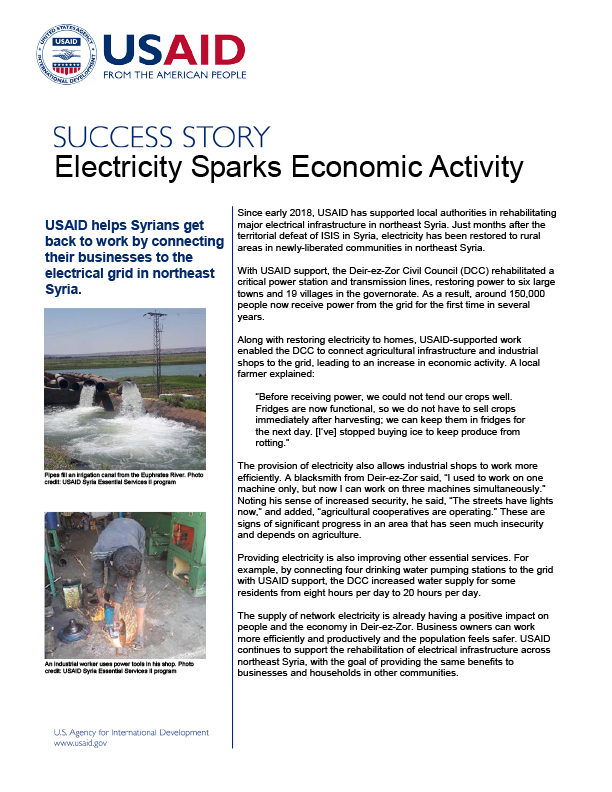Speeches Shim

Since early 2018, USAID has supported local authorities in rehabilitating major electrical infrastructure in northeast Syria. Just months after the territorial defeat of ISIS in Syria, electricity has been restored to rural areas in newly-liberated communities in northeast Syria.
With USAID support, the Deir-ez-Zor Civil Council (DCC) rehabilitated a critical power station and transmission lines, restoring power to six large towns and 19 villages in the governorate. As a result, around 150,000 people now receive power from the grid for the first time in several years.
Along with restoring electricity to homes, USAID-supported work enabled the DCC to connect agricultural infrastructure and industrial shops to the grid, leading to an increase in economic activity. A local farmer explained:
“Before receiving power, we could not tend our crops well. Fridges are now functional, so we do not have to sell crops immediately after harvesting; we can keep them in fridges for the next day. [I’ve] stopped buying ice to keep produce from rotting.”
Success Story: Electricity Sparks Economic Activity ![]() (pdf - 106k)
(pdf - 106k)
The provision of electricity also allows industrial shops to work more efficiently. A blacksmith from Deir-ez-Zor said, “I used to work on one machine only, but now I can work on three machines simultaneously.” Noting his sense of increased security, he said, “The streets have lights now,” and added, “agricultural cooperatives are operating.” These are signs of significant progress in an area that has seen much insecurity and depends on agriculture.
Providing electricity is also improving other essential services. For example, by connecting four drinking water pumping stations to the grid with USAID support, the DCC increased water supply for some residents from eight hours per day to 20 hours per day.
The supply of network electricity is already having a positive impact on people and the economy in Deir-ez-Zor. Business owners can work more efficiently and productively and the population feels safer. USAID continues to support the rehabilitation of electrical infrastructure across northeast Syria, with the goal of providing the same benefits to businesses and households in other communities.


Comment
Make a general inquiry or suggest an improvement.